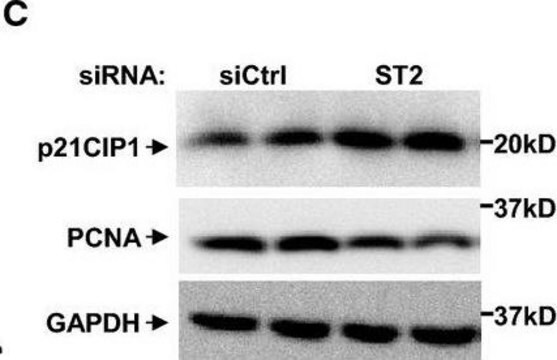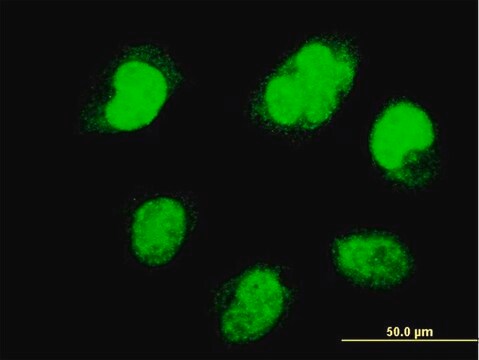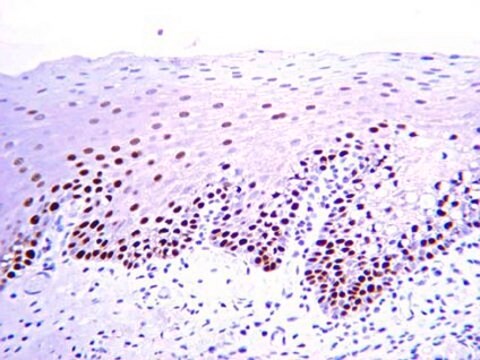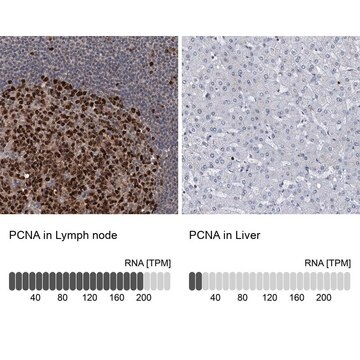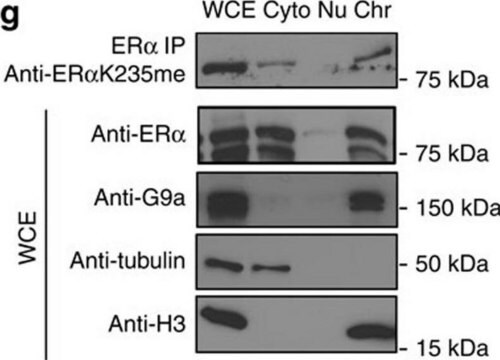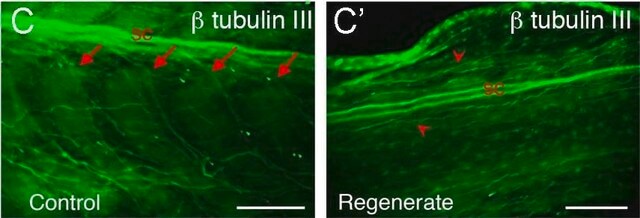SAB2701819
Anti-PCNA antibody produced in rabbit
affinity isolated antibody, buffered aqueous solution
Synonyme(s) :
cb16, fb36g03, pcna, wu:fa28e03
About This Item
Produits recommandés
Source biologique
rabbit
Conjugué
unconjugated
Forme d'anticorps
affinity isolated antibody
Type de produit anticorps
primary antibodies
Clone
polyclonal
Forme
buffered aqueous solution
Espèces réactives
zebrafish, (Japanese Medaka)
Technique(s)
immunohistochemistry: suitable
western blot: 500-3000
Numéro d'accès NCBI
Conditions d'expédition
wet ice
Température de stockage
−20°C
Informations sur le gène
zebrafish ... pcna(30678)
Description générale
Immunogène
Application
Anti-PCNA antibody has been used in the detection of proliferating cells by immunofluorescence.
Actions biochimiques/physiologiques
Proliferating cell nuclear antigen (PCNA) controls the production of the leading and lagging strands, which are required for the duplication of DNA. It acts as a cell cycle regulatory protein. This protein regulates apoptosis. PCNA is also involved in non-replicative DNA synthesis events.
Caractéristiques et avantages
Forme physique
Clause de non-responsabilité
Vous ne trouvez pas le bon produit ?
Essayez notre Outil de sélection de produits.
Mention d'avertissement
Warning
Mentions de danger
Conseils de prudence
Classification des risques
Aquatic Chronic 3 - Skin Sens. 1
Code de la classe de stockage
12 - Non Combustible Liquids
Classe de danger pour l'eau (WGK)
WGK 2
Point d'éclair (°F)
Not applicable
Point d'éclair (°C)
Not applicable
Certificats d'analyse (COA)
Recherchez un Certificats d'analyse (COA) en saisissant le numéro de lot du produit. Les numéros de lot figurent sur l'étiquette du produit après les mots "Lot" ou "Batch".
Déjà en possession de ce produit ?
Retrouvez la documentation relative aux produits que vous avez récemment achetés dans la Bibliothèque de documents.
Notre équipe de scientifiques dispose d'une expérience dans tous les secteurs de la recherche, notamment en sciences de la vie, science des matériaux, synthèse chimique, chromatographie, analyse et dans de nombreux autres domaines..
Contacter notre Service technique